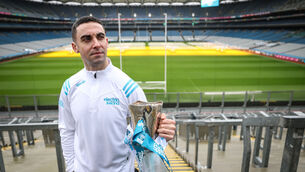The strains of a life less ordinary
THE picture Colm Coyle paints is a stark one. The season that’s in it, he might as well be jangling the chains of Jacob Marley, for his words are a warning to all you new inter-county managers in 2011.
What he forecasts for you, with your fresh, crisp bainisteoir bib, and your high hopes and aspirations is crippling hours, 30 to 40 hours on top of what they’re doing for a living — and add more if you’re managing outside your own county.













